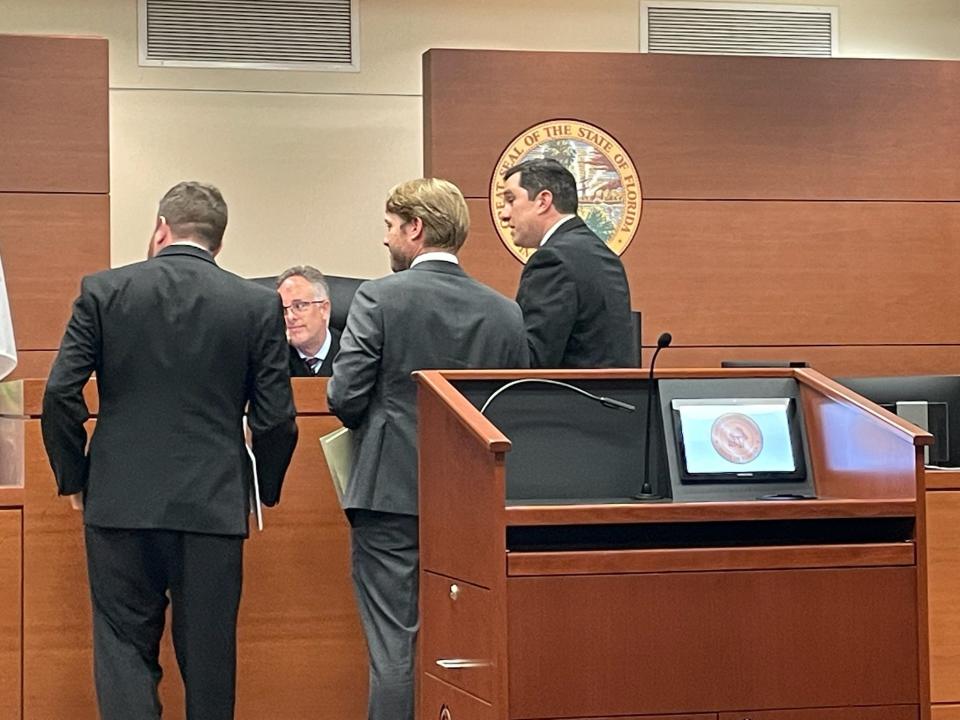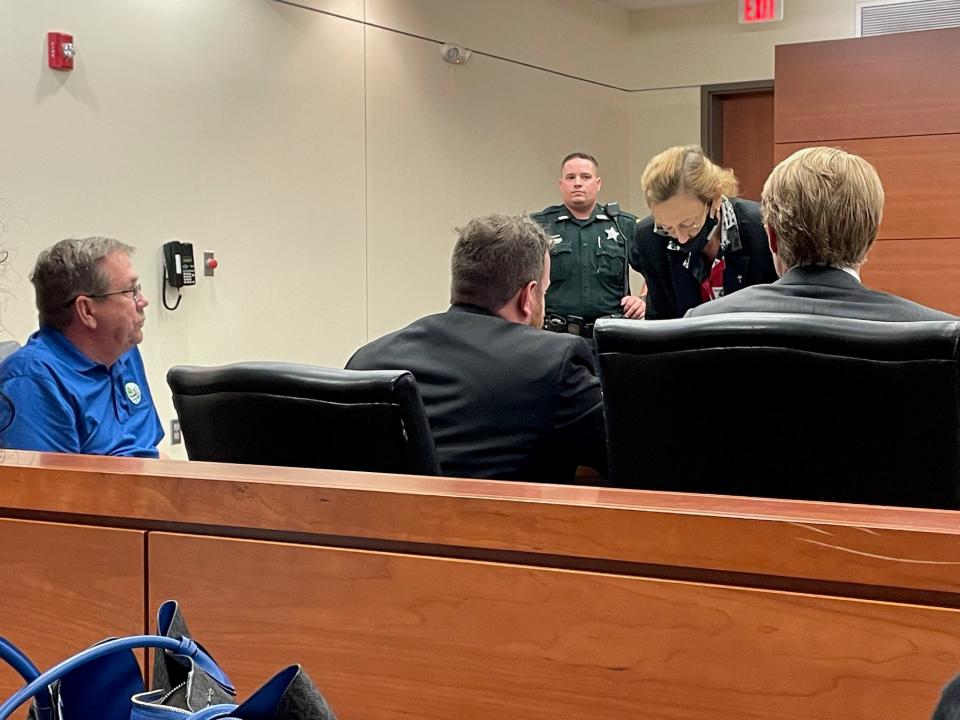Residents pack courtroom to learn more about City of Ocala's $80 million fire fee payout
A final hearing on the City of Ocala's fire fee legal matter was held Tuesday inside a packed courtroom at the Marion County Judicial Center.
More than 250 people came to the hearing seeking answers to numerous questions about the $80 million issue. The courtroom capacity is 261.
There was some humor during the proceedings, which stretched on for several hours. Presiding Circuit Judge Robert Hodges told the audience that he was not there to hand out checks. But he did hand out some answers.
Court: Ocala still sorting through fallout from overturned fire fee
Report: Ocala auditor wants changes after reviewing whistleblower complaint
Governor's visit: Florida Gov. Ron DeSantis signs $1.1 billion tax relief program during visit to Ocala
For instance, he told the audience that if they received a notice about the hearing in the mail, then that means they are included as class members in the suit and therefore can expect a check.
When? City lawyers present at the hearing said the plan is to send out the money within 60 days. The lawyers said there will be information on the city's website (ocalafl.org) providing full details once everything is worked out.
The judge said the money won't be sent each month; rather, it will be paid as a one-time lump sum. Minus court costs and legal fees, the judge said, residents could receive about 91 percent of fees they paid to the city in what the courts eventually determined to be an unlawful tax to support fire services.
One woman wanted to know why class members had to pay court costs. The judge said the court costs cover filing fees, adding it's not unusual for those costs to be associated with civil cases.
One of the plaintiff's lawyers, Derek Schroth, said more than 90,000 people are in the class. He said each member will receive, on average, about $900. This will vary between businesses and residents.

Those at the hearing were told that residents would have up to a year to claim their funds.
Sitting opposite Schroth's table were lawyers Robert Batsel and Jason Zimmerman, along with OcalaCity Council member Jay Musleh.
Questions about legal fees. How much, and how will they be paid?
One of the many speakers at the hearing was George Franjola, who said he represented the city in this longstanding lawsuit until his retirement.
Franjola wasn't there Tuesday as a lawyer; he was there as a member of the class. He objected to the plaintiffs' lawyers, Schroth and Sasha Garcia, and their team, receiving $6.4 million in legal fees from the common fund – about $80 million – from which class members will be compensated.
Franjola argued that if the plaintiffs extract their fee from the fund, that would improperly leave less for class members. He cited case law in his argument. Hodges will rule on the legal fee issue at a later date.

The plaintiffs called two lawyers with extensive experience in complex lawsuits to testify about legal fees.
Both lawyers examined the case and told the court that Schroth and his team – roughly four people total – had worked efficiently. The team did not get any money in advance for its services, one lawyer said after reviewing provided documents.
The lawyers said the $6.4 million fee was reasonable. One lawyer estimated the fee could have been anywhere from $15 million to $23 million.
One expert noted that if Schroth's team had been unsuccessful, it would not have been paid anything. The same lawyer noted that the team turned away other business and clients so it could concentrate on this suit.
Another unresolved question: What to do with unclaimed money?
In addition to the question about legal fees, Hodges must determine what happens to any money that isn't claimed by class members. City lawyers believe any such money should be returned to the city and its taxpayers. The plaintiffs wants it to go to the state.

Close to two years ago, an appellate court ruled that the city’s longstanding fire fee was actually an unconstitutional tax. The fee is no longer charged. Instead, the city has adopted a fire assessment schedule.
Residents began paying the fire fee through their utility bills in 2006. Discount Sleep of Ocala LLC and Dale W. Birch filed suit in 2014, and all people who had been paying the fee became part of the class action.
The appellate court ruled that, for the fire fee to truly be a fee, residents would need a reasonable opt-out mechanism. But the fee was bundled into the utility bill, so anyone wishing to opt out would have to either move or not pay their utility bill.
City officials said $60 million of the $80 million needed to pay class members will come from a bank loan, and the remaining $20 million will come from general fund reserves.
Contact Austin L. Miller at austin.miller@starbanner.com
This article originally appeared on Ocala Star-Banner: Judge in Ocala, Florida sorts out $80 million fire fee issue

